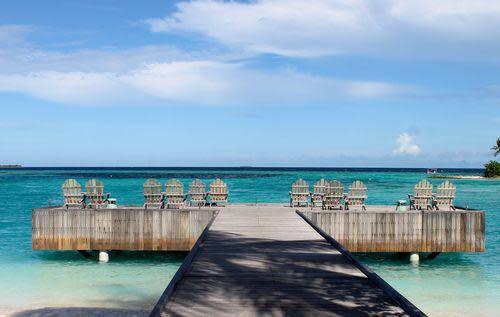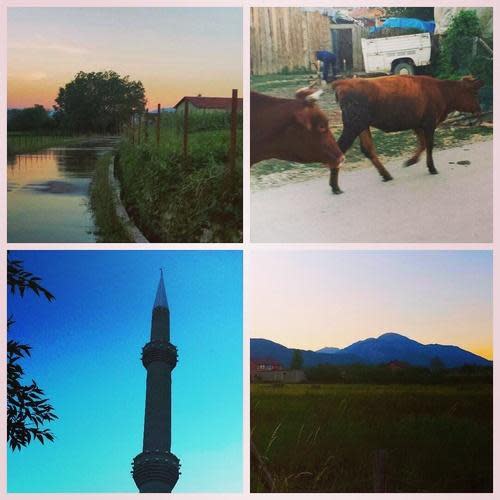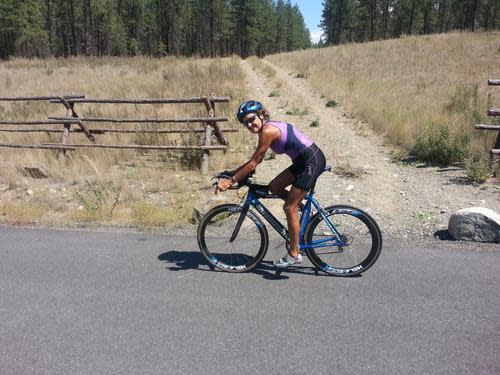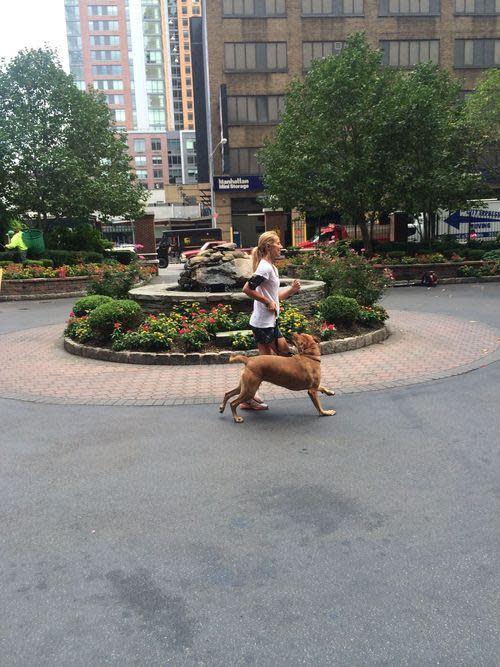A Triathlete Nun Helped Me Get Over My Missed-Marathon Depression

From experience I knew that running sent feel-good endorphins coursing through my body, however I wasn’t prepared for the fact that not running would have the opposite effect. But when I had to bail on my long-held plans to participate in my first half-marathon — one I had spent five months training hard for — I spiraled into a mini-depression.
The minute that I informed Team in Training, my philanthropic running group, that a bout of bronchitis and asthma was going to sideline me from the San Francisco Nike Women’s Half Marathon, sadness washed over me. I began thumbing through my iPhone to look at photos taken on past runs — a scroll of incredible scenic routes.
As an editor at Yahoo Travel, this means I am on the road about two weeks out of the month. That made training difficult, but also allowed me to train for my race in ten different countries through fascinating cities and beautiful landscapes. While on a trip through the Western Balkans, Kosovo, Albania and Macedonia I would run every night at dusk, around 7:30, through small villages with tiny dirt roads. Each night during my run, I would hear the storied clang of cow bells — a sign that the cows were, quite literally, coming home. It always made me smile.

My last 13 mile run through Killarney National Park in Ireland.

Reaching the tip of the dock at the Four Seasons Island in the Maldives at the end of a run was a gorgeous reward for my efforts.

Turkbuku on the Bodrum Peninsula in Turkey.

Rural Kosovo, where the cattle return home at dusk.
After weepily sifting through all the photos, I re-read a story I wrote for Self.com about why I was racing in the first place. I was writing about a book called “If Nuns Ruled the World: Ten Sisters on a Mission.” It includes ten profiles of nuns who have done extraordinary things — one of those exceptional women is Sister Madonna Buder.

The cycling nun:
Sister Madonna on a joy ride.
Madonna’s nicknames include “The Mother Superior of Triathlon” and “The Iron Nun,” both in homage to the more than 366 triathlons she’s done —46 of which were Ironman distances — since taking up running at the age of 47. Even at age 84, she still competes in Iron Man races.
After meeting her, I was inspired to run my first half-marathon. That meant reluctantly waking up at six each morning and quitting smoking and sugar. The result: I lost 25 pounds. And started liking running. A lot.
A few days before race, I was not in a healthy place: I was lying in bed puffing on my inhaler. Re-reading the profile of Sister Madonna, I was reminded of the adversity she had faced as a result of training like a world-class athlete. She’s broken ribs (a few times), fractured her right hip (in two places) her right arm (six times), her left arm (twice), plus her shoulder, clavicle, and nearly all her fingers and toes.
While training for her first Iron Man competition, a slew of accidents kept delaying her ability to race, including a bike accident bad enough to keep her in the hospital for a week. Afraid her legs would atrophy while she was bedridden, Madonna snuck into the stairwell at night to run up and down the eight flights of stairs. Three weeks later, she ran the Diet Pepsi Championship 10K race in New York City in a half-arm cast, taking fourth place among the women in her age group.
When I sent out an email to my friends and family to tell them I wouldn’t be flying across the country to race, most of the responses only made me feel worse.
“It’s just a race. You’ll run the next one.”
“Ha! Now you don’t HAVE to run 13 miles. Lucky you. LOL.”
“Bummer!!!”
The only thing that kept me from feel totally despondent was a conversation I had with John Bingham, former Runner’s World columnist and author of “An Accidental Athlete.” He explain that “the disappointment almost always comes from unmet expectations. The key to long-term success is to let go of those expectations as quickly as you can. It’s not to say that you can’t be disappointed, but, you can’t let that disappointed define the experience.”
John’s best advice: “Look ahead. Find another race. Change your expectations. Make those last minute adjustments to your training that you wouldn’t have been able to do. In simple terms, make the best of it.”
And then, out of the blue, Sister Madonna emailed me to check in. When I informed her that I had to cancel my plans, she responded with this:
“Life is nothing but a series of waves. Sometimes we are in the DIP and at others we CREST so LET’S JUST KEEP ROLLING, one wave at a time. There is always time to race through life, but we must also find stillness to recoup from disappointments. You are on the road to a whole new discovery. I’m excited for you!”
It was the perfect thing to say. The next morning I made an appointment with a pulmonary specialist, and I registered for another race, the Las Vegas Rock n’ Roll Half Marathon. I was still coughing on Sunday, the morning I had been scheduled to run, but I felt stronger and it was a beautiful fall day in New York City. I took a few puffs from my inhaler and ran down to the West Side Highway of Manhattan. I went slow. One mile became two and then two became six. I wasn’t running with thousands of others and nobody was going to give me a medal when I got home. I was just riding the wave.

On a slow-burn jog in New York with my favorite running buddy.
How to Come Back Even Stronger:
Bill Cole, founder and president of the International Mental Game Coaching Association, offers tips on how to recover after canceling a race.
1. Call your friends and create a substitute race and run it on the same date. Call it “The ‘Instead Of’ Open”.
2. View the change in plans as a positive opportunity to get some alternate tasks done, take a break from training or just plain goof off. Runners are very intense types and they need to learn to chill.
3. Spend time visualizing how you “would have run the race,” complete with your strategies, problem-solving tactics and picturing yourself accepting the winning trophy.
4. Think about how hungry for competition this delay is making you, and how much harder you’ll train so when the next event arrives, you will explode all your talent and training into a laser-focus for that event
